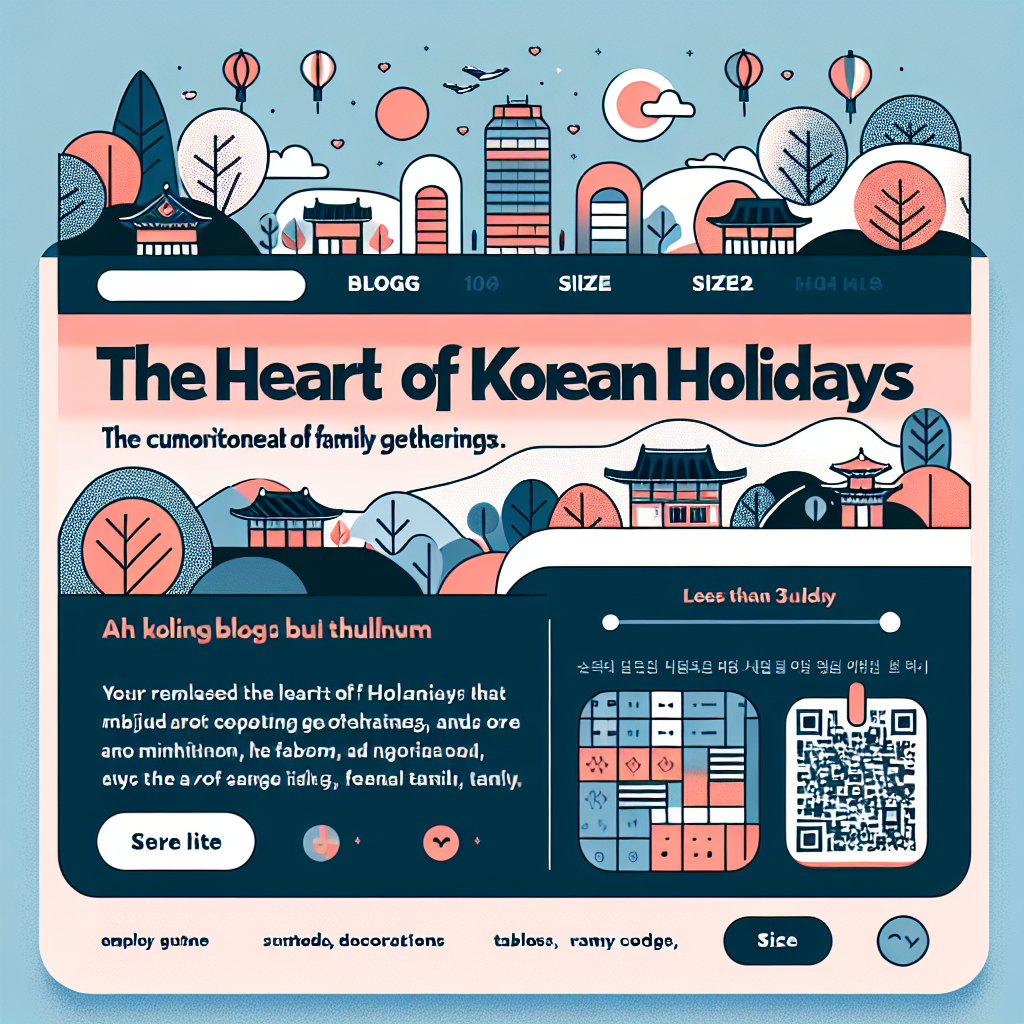The Cultural Significance of Family Gatherings During Korean Holidays
Korean holidays are times of joy, reflection, and reunions. One of the most cherished traditions is gathering with family during these special occasions. This cultural practice not only strengthens family bonds but also serves as a reminder of the importance of heritage and togetherness.
The Importance of Family in Korean Culture
Family is the cornerstone of Korean society. Historically, Korean culture emphasizes filial piety and respect for elders. These values are deeply ingrained and are most evident during family gatherings at holidays. During these times, the entire family reunites, sometimes traveling long distances to be together.
Beyond immediate family, extended family members often participate in these gatherings, highlighting the collectivist nature of Korean society. Sharing meals, stories, and laughter reinforces these familial connections and cultural values, which continue to thrive in modern Korea.
Major Korean Holidays for Family Gatherings
There are several major holidays in Korea that prompt family gatherings. Seollal (Lunar New Year) and Chuseok (Korean Harvest Festival) are among the most significant.
During Seollal, families perform ancestral rites, pay respects, and share traditional foods like tteokguk, a rice cake soup. Chuseok is a time for expressing gratitude for the harvest, and families come together to perform rituals, dance, and enjoy special dishes like songpyeon, a type of rice cake.
Traditional Activities During Family Gatherings
Family gatherings are filled with various traditional activities. One common activity is playing folk games, such as yutnori, a board game involving sticks and strategy. These games are a chance for both entertainment and education, teaching younger generations about cultural heritage.
Beside games, storytelling is a cherished activity. Elders recount tales from their past, passing down lessons and laughter to younger members. This oral tradition ensures that personal and cultural histories are preserved and celebrated.
Culinary Traditions in Family Gatherings
Food plays a central role in Korean family gatherings. Each holiday is associated with specific dishes, and preparing these foods becomes a collective family effort. Cooking together is an act of love and cooperation, reinforcing bonds.
During these occasions, traditional dishes are served in abundance. They not only satisfy the appetite but also symbolize prosperity and hope for the coming year. Such meals are opportunities for bonding and creating lasting memories.
Modern Adaptations of Traditional Gatherings
While traditional practices hold firm, modern adaptations have emerged. With urbanization and changing work patterns, some families choose to meet virtually to accommodate those who cannot travel.
This blend of tradition and modernity shows the resilience of family customs in Korea. The essence remains the same—nurturing relationships and honoring traditions but integrating new methods to keep pace with society.
| Aspect | Seollal | Chuseok |
|---|---|---|
| Main Purpose | Welcoming Lunar New Year | Celebrating Harvest |
| Ancestral Rites | Yes | Yes |
| Traditional Foods | Tteokguk | Songpyeon |
| Folk Games | Yutnori | Ganggangsullae |
Frequently Asked Questions
What is the significance of Charye during Korean holidays?
Charye is a traditional ritual involving the preparation of a table of food offerings for ancestors. It is significant because it honors the deceased, strengthens familial bonds, and acts as a moment for reflection and gratitude.
Why do Koreans emphasize celebrating holidays with family?
Koreans emphasize family during holidays because it reflects the cultural importance of family ties and collective identity. These gatherings celebrate not only the holiday itself but also reaffirm familial connections and cultural continuity.
Summary
- ✅ Korean holidays focus on family reunions, reflecting deep cultural values.
- ✅ Major holidays like Seollal and Chuseok are central to family gatherings.
- ✅ Traditional activities include playing games and storytelling.
- ✅ Culinary traditions involve preparing and enjoying symbolic foods as a family.
- ✅ Modern adaptations include virtual meetings, blending tradition with change.
#KoreanCulture #FamilyGatherings #Seollal #Chuseok #KoreanTraditions #LunarNewYear #HarvestFestival #TraditionalGames #KoreanCuisine #AncestralRites #Charye #FamilyTraditions #ModernKorea #CulturalHeritage #FilialPiety #RespectForElders #CulturalPreservation #Storytelling #Yutnori #Ganggangsullae #Songpyeon #Tteokguk #FamilyReunions #KoreanSociety #CulturalValues #FamilyBonds #OralTradition #HolidayCelebrations #CollectiveIdentity #VirtualGatherings #KoreanHolidays
